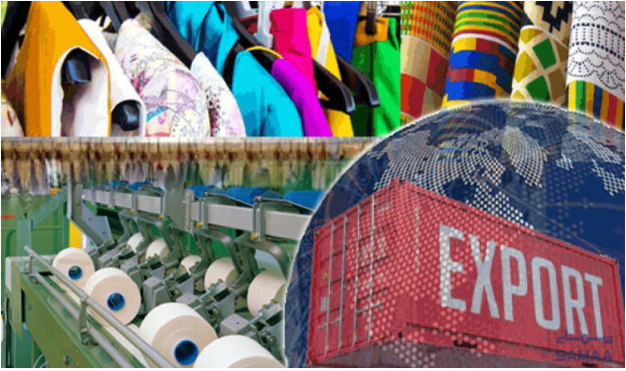INP-WealthPk
Ahmed Khan Malik
The Trade Development Authority of Pakistan (TDAP) is set to carry out a comprehensive sectoral needs assessment to identify key challenges facing major industries and recommend practical steps to enhance the country’s export performance.
According to TDAP officials, the study will evaluate gaps and opportunities in several key sectors, including textiles, leather, engineering goods, agro-food, and gems and jewellery. The initiative aims to determine what each sector requires in terms of skills, technology, policy support, and infrastructure to improve its global competitiveness.
“The objective is to pinpoint exactly what is preventing our industries from realizing their full export potential. This will help guide future policy decisions and ensure a more focused, evidence-based approach to trade development,” an official told Wealth Pakistan.
Pakistan’s export remains heavily reliant on textiles, which contribute over 60 percent of total export earnings. Officials said the upcoming assessment will help identify new and emerging sectors to support export diversification and reduce dependence on traditional industries.
Explaining the scope of the study, Farhan Raza, Executive Director (Trade Facilitation), said it will cover both supply-side constraints—such as access to energy, raw materials, skilled labor, and technology—and demand-side factors, including global market trends, buyer preferences, and international quality standards.
Speaking to Wealth Pakistan, Raza said the findings will form the basis of a national roadmap for improving competitiveness and unlocking untapped export potential. “By collecting and analyzing real-time industrial data, TDAP intends to work closely with businesses and policymakers to bridge the gap between research and execution,” he added.
The process will involve extensive consultations with industry associations, exporters, provincial departments, and research institutions. The findings will be consolidated into a comprehensive report expected by mid-2026, which will guide future actions in collaboration with the Ministry of Commerce, Ministry of Industries and Production, and other relevant agencies.
Raza noted that the assessment will also engage international experts and trade organizations to ensure Pakistan’s export framework aligns with global standards and best practices.
Through this initiative, TDAP aims to identify promising sectors for export growth, remove regulatory and operational bottlenecks, improve quality and compliance, and strengthen linkages between local industries and global supply chains. The study also seeks to ensure better utilization of public resources to support exporters more effectively.
“The assessment will give policymakers a factual foundation for future trade policies and export development programs. Our next steps will now be guided by data rather than assumptions,” a TDAP official emphasized.
However, industry representatives have pointed out that implementation will be the most challenging phase. Other hurdles include the lack of reliable industrial data, limited research capacity, and weak coordination among multiple stakeholders.
Despite these challenges, Masood Naqi, member of the Federal B. Area Association, welcomed TDAP’s move, describing it as a “much-needed step toward modernizing Pakistan’s export strategy and aligning it with evolving global trade realities.”
He added, “The sectoral needs assessment marks a shift in TDAP’s role — from traditional export promotion to a research-based, strategic model. If implemented effectively, it could help Pakistan diversify its exports, enhance product quality, and strengthen its position in international markets.”

Credit: INP-WealthPk









